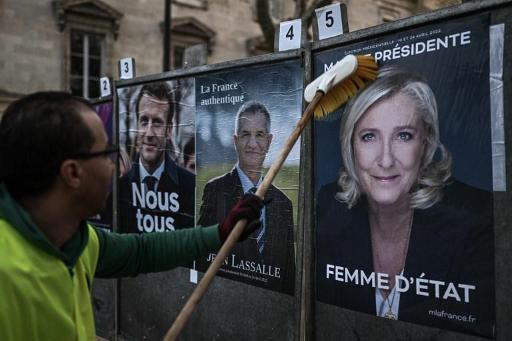Monday marks the start of the official 2022 presidential election campaign in France, which gives all candidates – including frontrunner and current President Emmanuel Macron – two weeks to campaign for the top seat in the Élysée.
During the official two-week campaign period, all candidates will, by law, get the same amount of airtime on TV and radio to present their political agendas to the country, ensuring President Macron will be on equal footing with challenging candidates rather than enjoying the usual boost in airtime of the President's office.
The polls
Macron (EC-RE): 28% (+1)
Le Pen (RN-ID): 20% (-1)
Mélenchon (LFI-LEFT): 14% (+1)
Pécresse (LR-EPP): 11% (-1)
Zemmour (REC-NI): 10%
...
+/- vs. 22-25 March 2022
Fieldwork: 25-28 March 2022
Sample size: 1,627
➤ https://t.co/qOzl2nSVPC pic.twitter.com/UDUkh0zks0
— Europe Elects (@EuropeElects) March 28, 2022
With his recent diplomatic efforts on the world stage, polling shows Emmanuel Macron is still leading the race with a slight increase in support, now at 28% (+1%), while Marine Le Pen has dropped 1% and is now at 20%. A late surge for Jean-Luc Mélenchon has him at 14% (+1%) and strengthening his position in third place.
Valérie Pécresse (centre-right candidate) has also suffered a slight decrease and now sits at 11%; Eric Zemmour (far-right) remains at 10% even if overall he continues to lose ground in the race.
With the election date just around the corner on 10 April, polling numbers are predicted to stabilise, indicating that the 2022 Presidential Election in France will be another showdown between incumbent Emmanuel Macron and the far-right candidate Marine Le Pen.
In the French electoral system, the two candidates with the most votes continue to the second round.
Voter indecision and abstention
There are still various factors that can determine the outcome of the presidential election. Almost four in ten voters have not made up their minds, according to Adelaide Zulfikarpasic, the director of BVA Opinion.
Voter abstention is another concern for presidential candidates and undermines the mandate that any eventual winner will secure. Macron won his first term with a remarkably low voter participation. Polling from the BVA firm suggested that only 70% of respondents intended to vote in April's presidential election.
Related News
- France: Death of Corsican nationalist fuels calls for independence
- Brussels Behind the Scenes: Macron's moment
Polling also showed how the coronavirus pandemic and the war in Ukraine has not renewed public interest in the French presidential campaign – which is now lower than in 2017.
The campaign trail
Presidential candidate Emmanuel Macron has benefitted from his position as head of state, relying on a sense of continuity and a "rally around the flag" effect, which a leader can benefit from during a major crisis. Macron recently launched his official campaign and will begin this two-week campaigning period in Dijon, focussing on youth, vocational training and city policy.
By contrast, Zemmour is under fire from the political classes in France after leading chants of "Macron assassin" at his political rally in Place de Trocadéro in Paris on Sunday.
Marine Le Pen's campaign trip to Guadeloupe was marked by a series of mishaps, when the water production plant that she was due to visit was close. She was also heckled by protestors on Saturday night during the recording of a TV programme, as reported by AFP.
The first round of elections will be held on 10 April; the two frontrunners will face off in a second round on Sunday 24 April.

